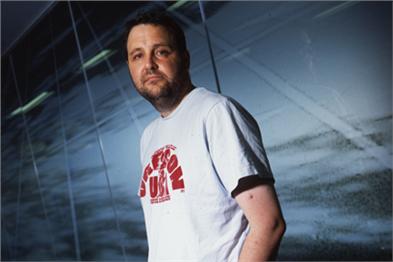Do you know why he's wearing that mac? No? We'll come back to that.
I was chatting to a friend recently. He hadn't been involved in advertising/marketing/media decisions for a few years, but got back into it a while ago. He was astonished by the plethora of people and companies that get involved these days: media agency, creative agency, digital agency, social agency. "How," he asked me, "do actual decisions get made?"
He's right, of course. It can be a bit of a mess. We've spent decades designing all sorts of proprietary tools and templates to describe brands and corral activity into coherence, but it's still not a smooth process. And, often, it's not the overall brand stuff that's important, it's the myriad of little creative decisions that are hard to manage across multiple agencies and individuals - the feel and detail of a campaign, rather than the character of a brand.
Once upon a time, all that stuff would get funnelled through a pair of creative directors, but that's becoming impossible - for reasons of scale, expertise and speed.
Francis Ford Coppola, who directed The Conversation, recently described how he approached this problem: "When you make a movie, always try to discover what the theme of the movie is in one or two words. Every time I made a film, I always knew what I thought the theme was, the core, in one word. In The Godfather, it was succession. In The Conversation, it was privacy. In Apocalypse Now, it was morality.
"The reason it's important to have this is because, most of the time, what a director really does is make decisions - all day long. Do you want it to be long hair or short hair? Do you want a dress or pants? Do you want a beard or no beard? There are many times when you don't know the answer. Knowing what the theme is always helps you.
"I remember in The Conversation, they brought all these coats to me, and they said: 'Do you want him to look like a detective, Humphrey Bogart? Do you want him to look like a blah blah blah.'
"I didn't know, and said the theme is privacy and chose the plastic coat you could see through. So knowing the theme helps you make a decision when you're not sure which way to go."
That seems like it might be useful, doesn't it? It's not about Brand Onion reductionism, it's just a simple idea that helps the little things add up.
And now I'll start thinking about the theme of next week's column.


